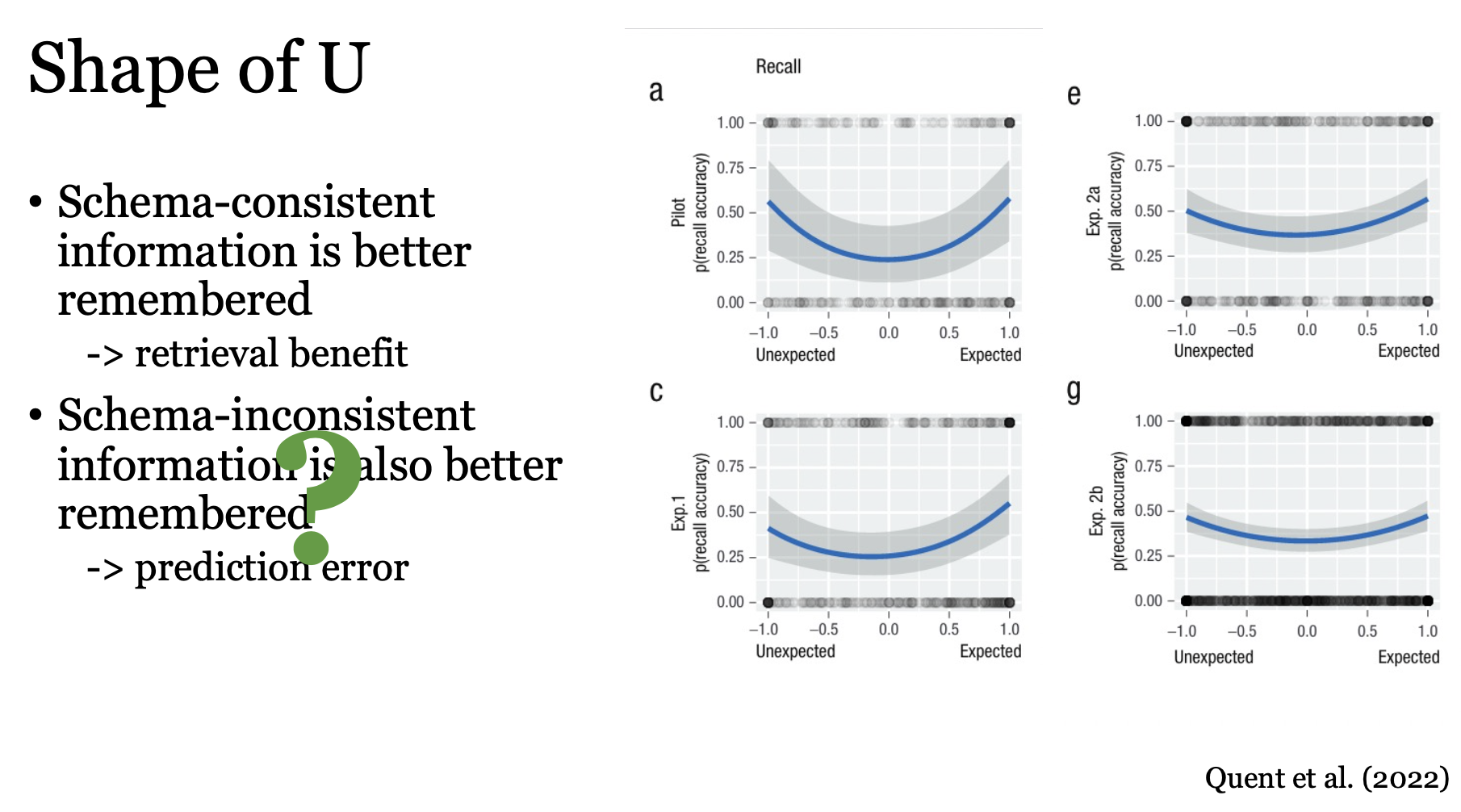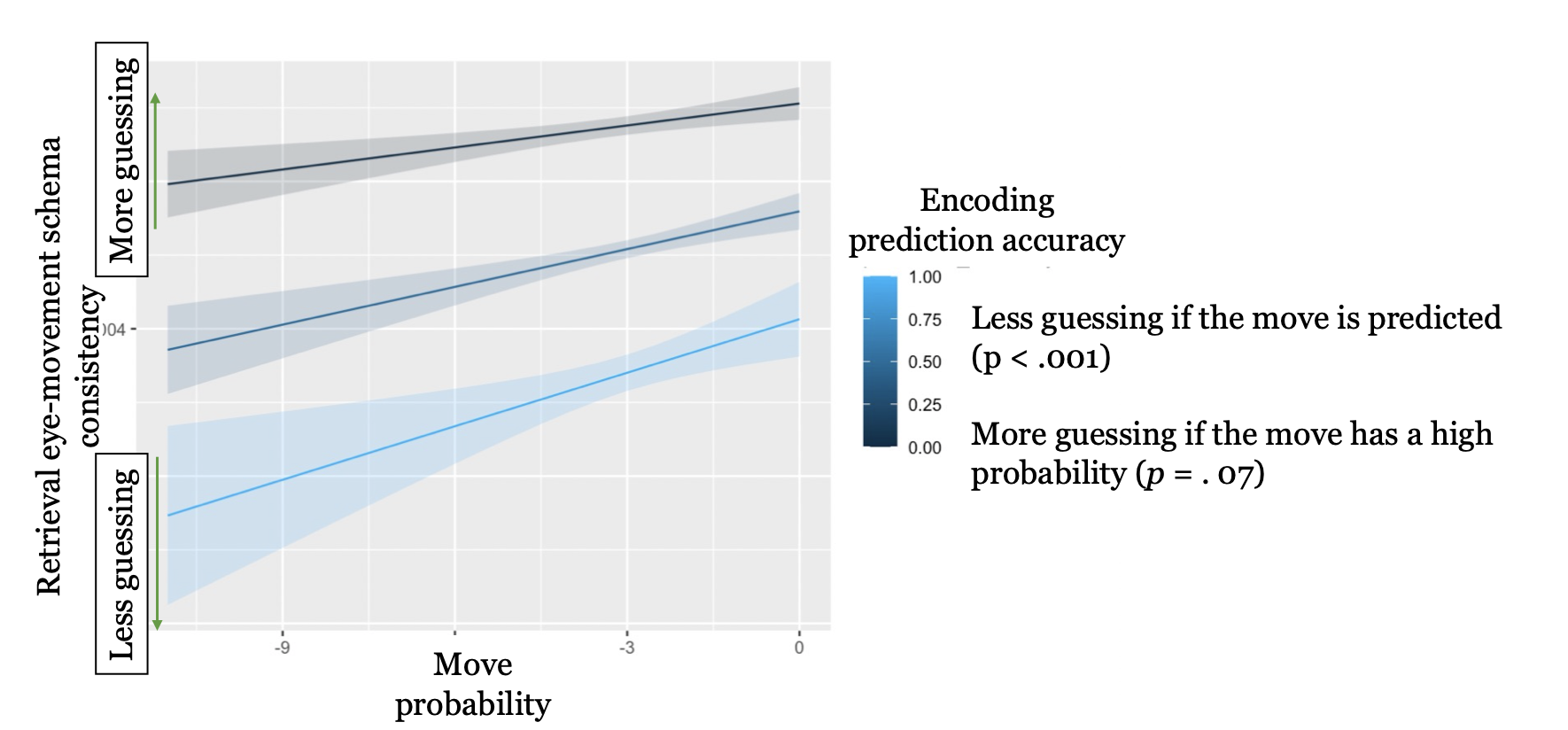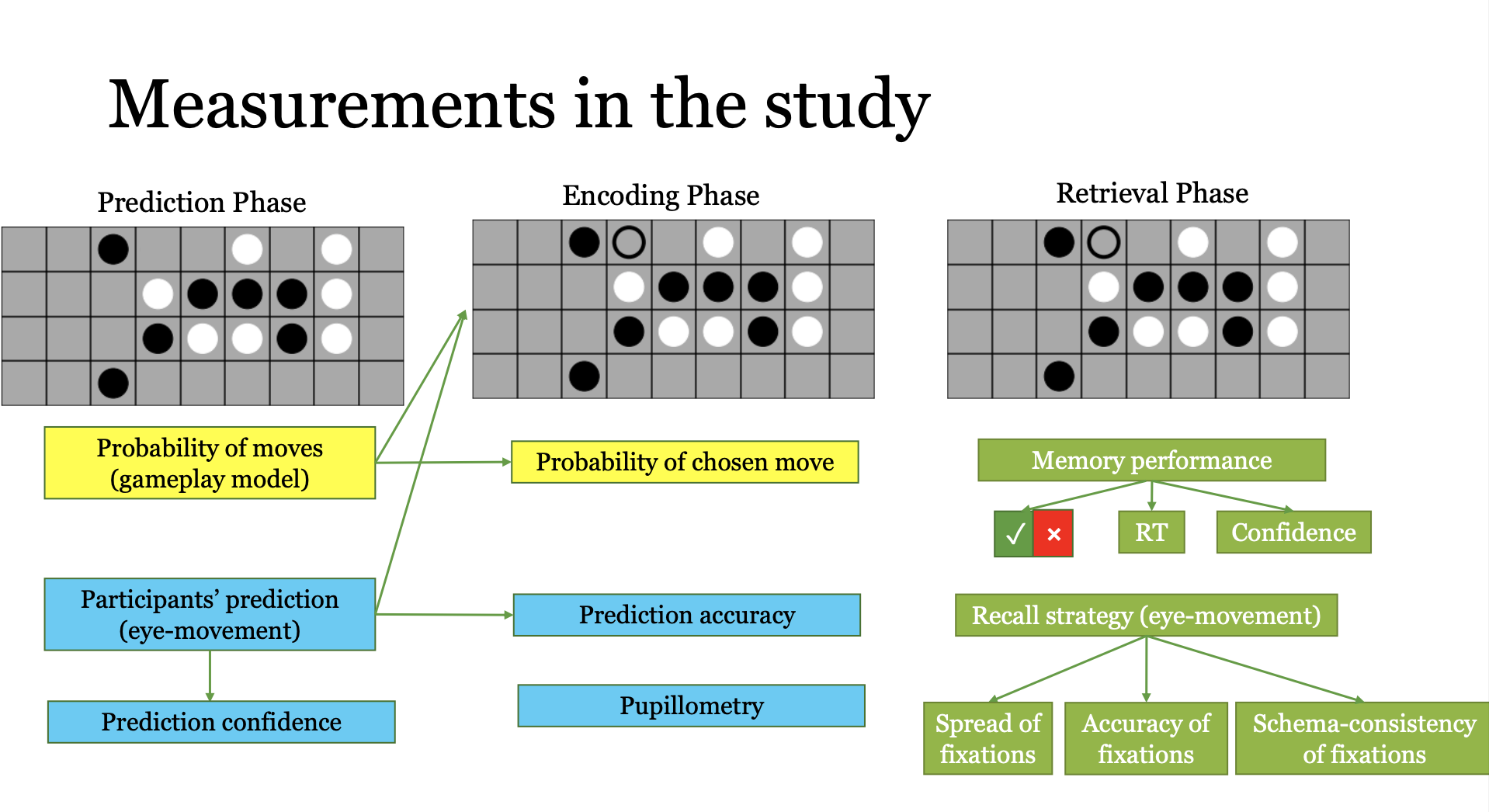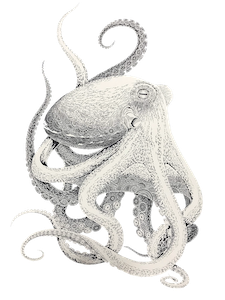Schema-based prediction during memory retrieval
[Oct, 2023]
My Contribution
- Led a variation on the second variation of the experiment on schema interference. Designed and implement the experiment in Javascript and Python, and trained a GAN-based AI player for experimental use.
- Collected over 1/3 of the data for the first experiment from in-person trials with eye-tracker setups.
Research Summary
1. Motivations
How do we learn to predict the next event in a dynamic continuous experience, and how such deliberate knowledges structure (or schema) is represented in the brain?
2. Contributions of our work
We used a novel board game paradigm (4-in-a-row) in combination with real-time eye-tracking to measure effects of schema-inconsistency and prediction error on the recall strategy during memory retrieval.
We verified our hypothesis that people spontaneously use their schemas to make predictions during sequence encoding. The more accurate prediction is, the better memory becomes.
Additional findings include:
- People relies on schemas if memory decoding is unsuccessful.
- Schema-consistency and prediction-accuracy independently contribute to the memory effect (shape of U relationship between better memory and respectively with schema-consistency and inconsistency) observed in previous literature.
Jiawen Huang 1, Hannah Tongxin Zeng 2, Chrisopher baldassano 1
DPM Lab
Dynamic Perception and Memory Lab ↗
1: Columbia Department of Psychology
2: Barnard College, Columbia University
DPM Lab
Dynamic Perception and Memory Lab ↗
1: Columbia Department of Psychology
2: Barnard College, Columbia University




